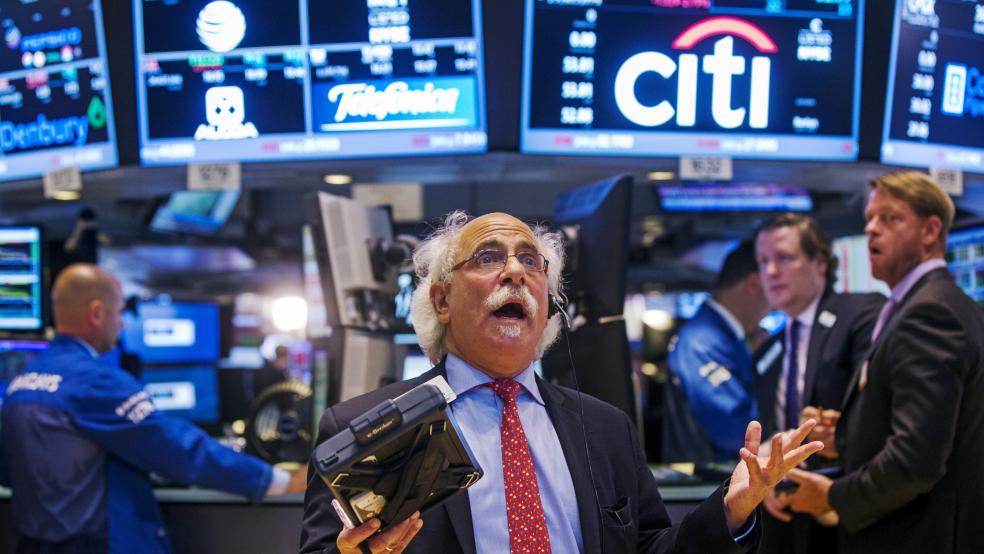U.S. stocks plummeted Tuesday as continued signs of weakness in China and concerns about the Federal Reserve weighed heavily on investor sentiment.
The major averages ended in correction territory, down nearly 3 percent in their third-largest daily decline for 2015. Stocks failed an attempt to cut losses in choppy trade prior to the close.
In their worst start to September in 13 years, the Dow Jones industrial average and S&P 500 had their worst first trading day of a month since March 2009. The Nasdaq had its worst first trading day of a month since October 2011.
The Dow closed about 470 points lower, off session after falling as much as 548 points. The Nasdaq composite wiped out gains for 2015, joining the other averages in the red for the year so far.
Related: Oil Sees Biggest Price Surge in 25 Years, but the Slump May Not Be Over Yet
"Today is just a continuation of last night's sentiment, plain and simple. Concerns continue to erupt about China's economy and the growth (as well as the) decline in energy and WTI today," said Ryan Larson, head of equity trading at RBC Global Asset Management (U.S.).
Crude oil settled down 7.7 percent, down $3.79 percent, at $45.41 a barrel, giving back much of Monday's 8.8 percent surge.
Traders also continued to digest policymaker comments and U.S. data that could impact the timing of a rate hike.
"I think that is clearly the center of the weakness but I don't know why people expect China to get any better," said David Kelly, chief global strategist at J.P. Morgan Funds. "China has its problems but it's not a big driver for the U.S. or earnings of U.S. corporations."
"Nothing happened yesterday to affect the people's perceptions of the Fed," he said.
Other analysts attributed the volatility to a hawkish read on Fed Vice Chair Stanley Fischer's comments over the weekend ahead of Friday's key jobs report and the FOMC meeting later this month.
Related: As Stocks Swing Wildly, Investors Dump Equities at Record Pace
"The markets were counting on him to be more dovish and he wasn't. That in conjunction with the weak PMI (in China)" pressured stocks," said Krishna Memani, chief investment officer at Oppenheimer Funds.
Earlier, stocks extended losses in afternoon trade after Boston Fed President Eric Rosengren said in a speech that the central bank's jobs target to raise rates has largely been met, but that its inflation target is not as clear cut. Rosengren is a nonvoting member.
"Regardless of whether you're a voting member or not, if you [say] September's on the table, that's going to, in part, drive us lower," said Art Hogan, chief market strategist at Wunderlich Securities.
Two sets of key Chinese data disappointed traders on Tuesday. The official manufacturing purchasing managers' index (PMI) edged down to 49.7 in August from 50 in July, while the final Caixin/Markit manufacturing PMI came in at 47.3 in August, the lowest reading since March 2009.
Even more worrying, China's services sector, which has been one of the lone bright spots in the sputtering economy, also showed signs of cooling, a similar business survey said.
"Services PMI was a little weaker than expected," said Ben Pace, chief investment officer at HPM Partners. He noted that many analysts were expecting the services sector to offset weakness in the manufacturing sector.
"I think it's continuation of the volatility we've been seeing. Our thought is this kind of volatility (is present) particularly because we're in the summertime. We're also in a news vacuum. No (major) earnings out there," Pace said.
The CBOE Volatility Index (VIX), widely considered the best gauge of fear in the market, has held stubbornly high near 30 since last Monday's plunge in stocks. The index approached 33 in the close.




